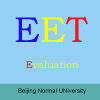-
Methods of Inquiry
普通类 -
- 支持
- 批判
- 提问
- 解释
- 补充
- 删除
-
-
Methods of Inquiry
IN RESEARCH, SELECTING THE BEST strategy to approach a particular research topic or question is half the battle. Research can be classified or defined in many different ways. In order to pick the appropriate techniques, it's essential to know what types and methods are available.
-
Types of Research: From Basic to Applied
Research can be classified by the degree of direct applicability of the research to educational practice or settings. It can range from basic research (focused on developing or enhancing theory) to applied research (conducted to solve current educational problems).
Types of Research Spectrum-
Research Methods: Quantitative and Qualitative
There are two basic research methods: quantitative and qualitative. Each method approaches a research topic differently and each consists of multiple approaches.
Quantitative research is very traditional and is adopted from the natural sciences. It relies on the belief or assumption that our world and the claims about it are not considered meaningful unless they can be verified through direct observation.
Qualitative research, on the other hand, is fairly new and is based on different beliefs. In qualitative research, all meaning is tied to perspective or context, so there is typically never one right answer. The table which follows tabulates the many differences between the two methods of inquiry.
Table 1: Characteristics of the Research Methods (Gay & Airasian, 2003)
Characteristics Quantitative Research (aka. Empirical or Analytical) Qualitative Research (aka. Interpretive)
Purpose To generalize about or control phenomena To provide in-depth descriptions of settings and people
Reasoning Method (click for more info) Primarily Deductive: Specific Primarily Inductive: Generalization based on specific observations and experience predictions based on general observations, principles, or experiences
Hypothesis Identified prior to research, purpose of research is to test it Begins with guiding research questions, which will be refined during data collectinon
Nature More narrowly focused and outcome oriented Holistic and process oriented
Design Clear, well-ordered sequence of steps Flexible and changeable during research
Interaction with Tries to eliminate the influence of contextual variables Tries to capture the richness of the context of the subjects and their perspectives
ContextData collection Primarily numerical data gathered through paper-and-pencil, Primarily narrative data, collected from fieldwork (can also include numerical data) non-interactive instruments (can also include narrative data)
-
Research Approaches: Complementary vs. Oppositional
Choosing the most appropriate strategy or strategies allows the researcher to design the most effective framework to better understand his/her research topic or question. Approaches fall under one of the two methods described above.

Complementary Data Gathering
Quantitative methods tend to gather numerical data, while qualitative methods tend to gather narrative, non-numerical data. Although these methods sound oppositional, they are in fact complementary, and the approaches or strategies from each can be used together in order to better explore a research topic.-
The (Interactive) Research Tree
Overview:
The types of, methods of, and approaches to research are represented below. The figure is interactive.
Directions:Simply mouse over the text to see more details on a specific topic. A short definition and an example, if appropriate, will appear in the text box on the right of the tree.

Interactive Research Tree (Gay & Airasian, 2003)
-
More Information
The following links are from the Research Methods Knowledge Base which is centered around social science research, but has useful content:
Deductive and Inductive Thinking
Qualitative Approaches
Qualitative Data
Click on these EET Links for more related information.
Types of Survey Questions-
Author
Brian Stumme
SDSU Graduate Student -
-
- 标签:
- data
- inquiry
- qualitative
- methods
- research
-
加入的知识群:



学习元评论 (0条)
聪明如你,不妨在这 发表你的看法与心得 ~